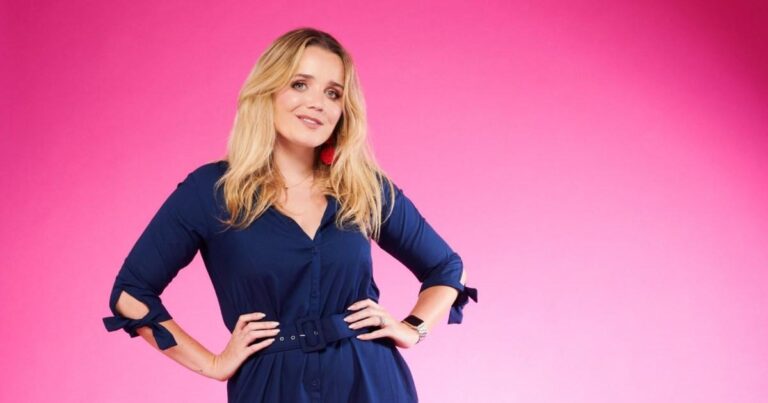
‘Real and frightening privacy and safety risks.’
That’s the view of experts at Cambridge University in a report released this week on period tracker apps, warning that our personal information can be collected and sold at scale.
Hundreds of millions of women are estimated to use these apps, which track menstrual cycles, and the risks are plentiful. The first and perhaps most striking comes when we consider what happens if this intimate data were to end up in the wrong hands.
Knowing which women are pregnant and which women want to be is information which, if passed on to health insurers, could cause discrimination; if accessible by potential employers, could put jobs at risk; and that’s before we consider the threat of coercive control and domestic violence.
It is also frightening to consider what this risk could look like for our reproductive rights, under threat at home and abroad.
Recent police guidance suggests officers who suspect women of carrying out an illegal abortion check phones and devices for data on these apps.
It’s terrifying.
And there are other considerations, too.
The report notes that the data on tracking apps is a ‘gold mine’ to advertisers, having emerged ‘as some of the most sought-after information in digital advertising’.
I’ve been pregnant myself, twice, and I know first-hand what a valuable commodity that made me.
Within a day of that second line appearing on my first test I was targeted; with everything from pregnancy pillows to next-to-me-cots to shushing sheep to nappies, dummies, carseats, to pram bags, and pram bags and yet more pram bags.
Did my phone hear me? Did my period tracking app tell on me? Could the advertisers see through the lens of the camera as I sat on the loo and snapped a picture to send to my husband?
I have no idea, but like many of us, I have accepted that my phone just knows.

It knows that I need a rug for my daughter’s room and that I’ve been meaning to try out a lip-stain product and that I might be in the market for biodegradable loo roll.
It knows that I would very much be interested in seeing Robbie Williams on tour and that I’m anxious and that I have a baby and a toddler and a dog and a husband, and a mole above my left eyebrow, and a blister on my right foot, and probably how long my bumcrack is too.
Honestly, I don’t worry about it that much. Mostly because if I thought about it long enough, I think I’d explode with anxiety – and then my phone would probably start showing me adverts for therapy.
Because it IS terrifying. As a concept, and as a reality. But I don’t really know what any of us are meant to do about it. Ordinary people don’t have time to read the terms and conditions of every app.
We download, we use, and we’ve got no one to dispute them with even if we wanted to.

We know we ought to be more careful but I don’t know what that looks like for a person who needs a phone and a laptop and maps to get through the day.
Data-harvesting just feels like a part of being on the internet, and we know we can’t live without it.
It feels easier, for me at least, to partially lean in.
To reason with myself that I have nothing to hide, that I’m pretty boring, and that it’s actually quite helpful sometimes when you need a specific present for a 64-year-old woman who likes exercise and has dogs, to know that if you search for it once, your phone might help you out with a targeted ad of some kind.
From my position of privilege, someone who lives in a country where I can access an abortion should I need to, and who knows that my data wouldn’t be used to prosecute me should that happen, I know I can also enjoy period tracking apps.
I use one; I used it before I got pregnant as a means of contraception and I used it to get pregnant, too.

It took all my data as happily as I gave it and it helped and interested me and empowered me. Having learned next to nothing about myself or my anatomy at school, I found the app incredibly helpful.
Because data from these apps can be useful, when considered by women ourselves – they help us know our bodies and advocate for our needs.
But as we see time and time again, we have to accept that this is being taken advantage of, that our data is valuable, that the risks are real.
Which is a shame. Because I believe that, used properly, these apps are empowering a lot of women and are working to address the gender health gap.
Young women have always been one of societies’ most powerful commodities, and it seems our data is no exception.
Do you have a story you’d like to share? Get in touch by emailing jess.austin@metro.co.uk.
Share your views in the comments below.
MORE: I thought I couldn’t have kids until my ‘surprise’ Mounjaro baby
MORE: Race Across the World’s Sioned shouldn’t be sneered at for her tears
MORE: Thomas Tuchel has lost a game – and fans have lost their minds


